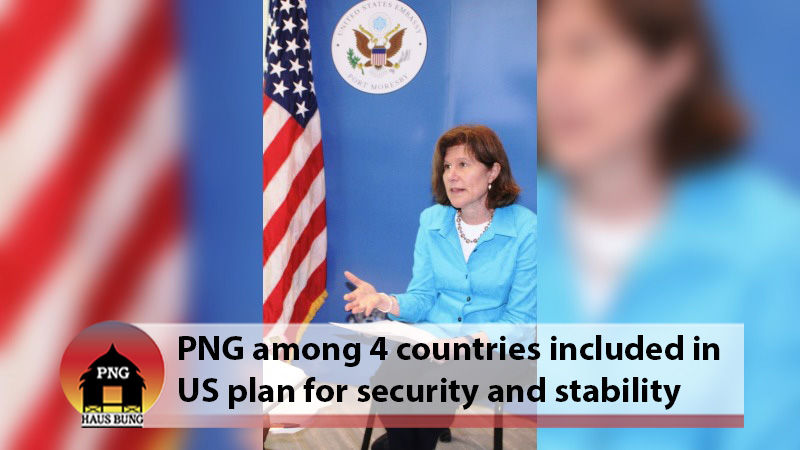United States President Joseph R. Biden, Jr. has approved and announced the United States (US) Strategy to Prevent Conflict and Promote Stability in partner countries including Papua New Guinea (PNG).
The announcement and approval was given for country-specific plans for four countries and one region for implementation of the ten-year U.S. Strategy to Prevent Conflict and Promote Stability.
The partners are: Papua New Guinea, Haiti, Libya, Mozambique, and the region of Coastal West Africa, which consists of Benin, Côte d’Ivoire, Ghana, Guinea, and Togo.
The strategy outlines a U.S. whole-of-government effort designed to foster and achieve better long-term outcomes through integrated diplomacy, development cooperation, and defense-sector engagement.
It seeks to address challenges associated with conflict and instability in more effective ways than past stabilization efforts.
The Strategy’s development followed in-depth quantitative and qualitative analyses, and robust consultations with local populations and host country governments, peacekeeping and development organizations, and the U.S. Congress.
The PNG country plan focuses on the prevention of conflict, including sustainable and equitable economic growth; more professionalized security forces; and building community capacity to more effectively prevent, mitigate, and respond to violence and conflict.
Assistant Secretary Anne A. Witkowsky, who oversees the U.S Strategy globally in an interview with PNG Hausbung, stated that US will continue to collaborate with the PNG government, civil societies and local leaders to implement this initiative and adapt the changing circumstances.
The Assistant Secretary highlighted three main objectives of the US strategy; The first objective is Building Communities Capacity to Prevent, Indicate or Respond to violence.
This includes empowering women and girls and other marginalized groups to participate in all rounds of peace building.
“This will also focus on building community resilience to dispute events such as climate change and promoting media freedom with those seeking accountability and justice,” said Witkowsky.
The second objective is to Support Equitable and Sustainable economic growth in the next 10 years. “US hopes to promote and improve business environment with more transparent and responsible enterprises, one in which women and youth can have access to financial institutions and markets and skills to effectively use them,” Witkowsky added.
In the Third Objective, Witkowsky highlighted that it is about supporting the Justice System and the Security Forces.
“Within the Police and Defence force, we hope to see improved institutionalization, human rights principles and more women integrated into the force and also accountability for those involved in violent crimes and corruption.”
She said that in this way security forces can continue to build trust among communities and US wants to be part of PNG’s growth as a leader in region.
Assistant Secretary Witkowsky further detailed that US will roll out this strategy in two pilot provinces, these two provinces are Morobe and Hela.
These provinces will be the places to start the theory of change and if successful, the US will potentially replicate the context in other provinces, and the US President has allocated a funding of US$10million (over K36 million) for the US Strategy to Prevent Conflict and Promote Stability.
“PNG has an important role among the Pacific Island countries as a leader in regional economy, one with the history of democratic elections and presence in regional and international organizations; therefore, the United States will continue to collaborate with partners in the Papua New Guinean government, civil society, local leaders, and the private sector to implement the ten-year country plan.”

